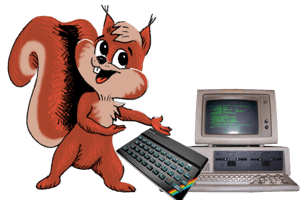Subcategories 9
Related categories 3
Sites 17
Journalist and technology historian. Collector of and writing about past, present, and the future of technology.
A research center at the University of Minnesota dedicated to promoting the study and preservation of the history of computing and information processing.
Promotes the conservation of historic computers and identifies existing computers which may need to be archived in the future.
Articles and photos on many topics; user submitted content with Wiki-style editing for registered users; photo gallery, forum, feedback.
Pictures of many of the pioneering computers.
Focuses exclusively on the history of computing. Located in Mountain View, California. Search the collection, illustrated timeline, online exhibits and select images from the collection, "This Day in History," curator's choice, and the Hall of Fellows (awards for contributions to computing).
Detailed information including early pioneers and companies, archives, languages, and networking from the Department of Computer Science at Virginia Tech.
Lecture presented by Michelle A. Hoyle explaining how computers and computing science arose from using sticks with notches for counting, to the massive explosion of personal computers in the 1980s.
Historical survey from Babbage onward; by B. Jack Copeland from the Stanford Encyclopedia of Philosophy.
Pictures, documents, and advertisements of classic computers from the 1970's and 1980's.
Examines the evolution and culture of electronics and computers through a retro-inspired yet modern-styled format; paired with microM8.
This site is under construction but has some nice pictures of some pre-IBM machines.
Covers the earliest ways of encoding data up to the cards used in voting systems today.
Writings on computers, the early online world, and the Internet, dating from 1992 to 2000.
In San Francisco Bay Area; background, history, future: trends, forecasts.
by Howard Rheingold. Online copy of well known 1985 book on the invention of computing; includes Babbage, Turing, von Neumann, Engelbart, PARC, Kay, and Atari.
Biographies, an interactive game, and a questions and answers forum trace the birth of the personal computer at this PBS companion site.
Examines the evolution and culture of electronics and computers through a retro-inspired yet modern-styled format; paired with microM8.
Journalist and technology historian. Collector of and writing about past, present, and the future of technology.
Promotes the conservation of historic computers and identifies existing computers which may need to be archived in the future.
Covers the earliest ways of encoding data up to the cards used in voting systems today.
Biographies, an interactive game, and a questions and answers forum trace the birth of the personal computer at this PBS companion site.
In San Francisco Bay Area; background, history, future: trends, forecasts.
Articles and photos on many topics; user submitted content with Wiki-style editing for registered users; photo gallery, forum, feedback.
This site is under construction but has some nice pictures of some pre-IBM machines.
A research center at the University of Minnesota dedicated to promoting the study and preservation of the history of computing and information processing.
by Howard Rheingold. Online copy of well known 1985 book on the invention of computing; includes Babbage, Turing, von Neumann, Engelbart, PARC, Kay, and Atari.
Detailed information including early pioneers and companies, archives, languages, and networking from the Department of Computer Science at Virginia Tech.
Lecture presented by Michelle A. Hoyle explaining how computers and computing science arose from using sticks with notches for counting, to the massive explosion of personal computers in the 1980s.
Pictures of many of the pioneering computers.
Focuses exclusively on the history of computing. Located in Mountain View, California. Search the collection, illustrated timeline, online exhibits and select images from the collection, "This Day in History," curator's choice, and the Hall of Fellows (awards for contributions to computing).
Historical survey from Babbage onward; by B. Jack Copeland from the Stanford Encyclopedia of Philosophy.
Pictures, documents, and advertisements of classic computers from the 1970's and 1980's.
Writings on computers, the early online world, and the Internet, dating from 1992 to 2000.
Other languages 10
